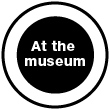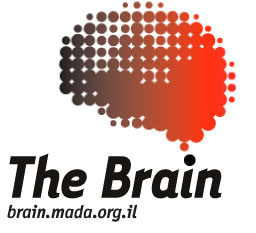| |

Brainworks: Studying the brain
Why the brain?
Because what we are, what we do, what we think and feel, what we remember and what we perceive are largely products of the brain.
How does the brain do all this?
Many scientists, with Israelis at the forefront, are trying to find the answer. Because of the brain's complexity, we have only touched the fringes - but they are in themselves fascinating, provocative and sometimes helpful in understanding and treating dysfunctions.
What is brain research?
In order to begin to understand the brain we need to study
- Its microscopic and macroscopic functional anatomy - what goes on and where within the brain and within its cells
- The biochemical and molecular substrate of these actions
- The brain's language, coding and information processing algorithms
- The cognitive products of the brain - perception, learning, memory, recall, emotions, behaviour - and their dysfunctions
…and as our understanding improves, we need to relate to social and ethical issues such as the potential of certain treatments to create 'super' humans.
These studies call for a variety of techniques:
- Anatomical imaging and tracing of pathways
- Functional imaging: Functional Magnetic Resonance Imaging (fMRI), optical imaging of electrical activity and others
- Biochemical analysis or modification
- Electrical recording of activity of individual cells, networks or the whole brain
- Observation of the functional effects of lesions, of genetic manipulation, and of electrical or magnetic stimulation of specific locations in the brain
- Psychological studies of cognition and of dysfunctions with their neural and biochemical correlates
- Computer simulation of the brain's properties with 'neural networks', and of the processing of information within neurons
A full understanding of the brain - if we ever get there! - will require an integration of the results of all these approaches - and perhaps a major conceptual breakthrough as well!
This exhibition…
The exhibition was closed in April 2010
Illustrates the methodology adopted in brain research, and offers a tantalising sample of six (mainly Israeli) brain research projects. These projects were chosen for their intrinsic interest, their being at the cutting edge, and their accessibility. Each of the six is presented in a 'laboratory frame' and with experimental equipment that recreates as far as possible that of the laboratory and allows the visitor to retrace - wherever possible - the researcher's actions. Preserving the scientific atmosphere, each is accompanied by a computer presentation, a poster, and a relevant semi-popular article.
The projects were chosen to allow the visitor to taste the variety of challenges faced by scientists - choice of problem, research methods and tools, and relevance of the results.

Researchers
Prof. Shlomo Bentin, Elana Zion Glombic, Prof. Shaul Hochstein, Rubi Hammer, Dr. Uri Hasson, Prof. Oded Livnah, Prof. Rafi Malach, Erez Podoly, Dr. Avraham Zangen, Dr. Yftach Roth, Prof. Idan Segev, Prof. Hermona Soreq
Scientific consultation
Prof. Peter Hillman
Curation
Varda Gur Ben Shitrit
Exhibits development
Amir Ben Shalom
Educational consultation
Diana Alderoqui Pinus
Scientific texts and Development
Dr. Itay Asher; Ana Barlasov-Yofe, Elana Zion Golumbic, Alit Stark, Dr. Oren Shriki
Exhibition design
Eyal and Leora Tal Vogel
Graphic design
Vadik Bakman
Films production
Head room
Production
Bloomfield Science Museum Jerusalem
|
|












